The Wild Boar is delighted to partner with Lake District Falconry, a fresh and exciting new experience that brings the wild things to our ancient woods.
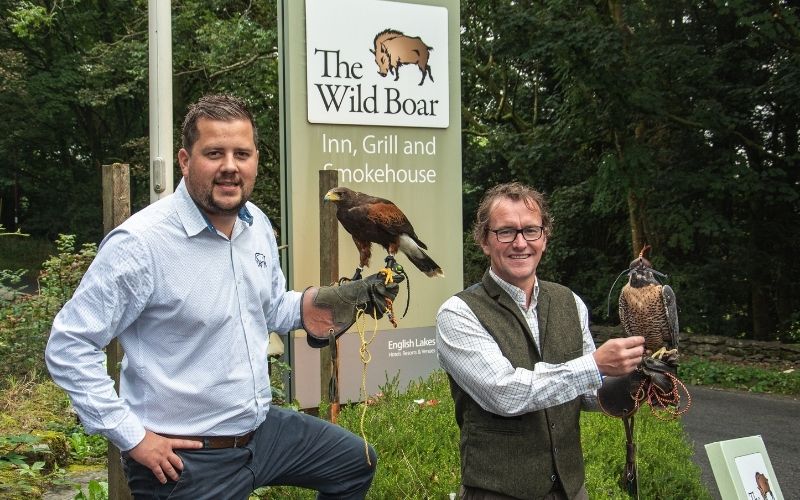
History of Falconry
It’s hard to give an exact date to the start of falconry but we do know it’s been practised for well over 3000 years, with images from the time showing humans using birds of prey to obtain food. Falconry rapidly became the pastime of powerful rulers of the time.
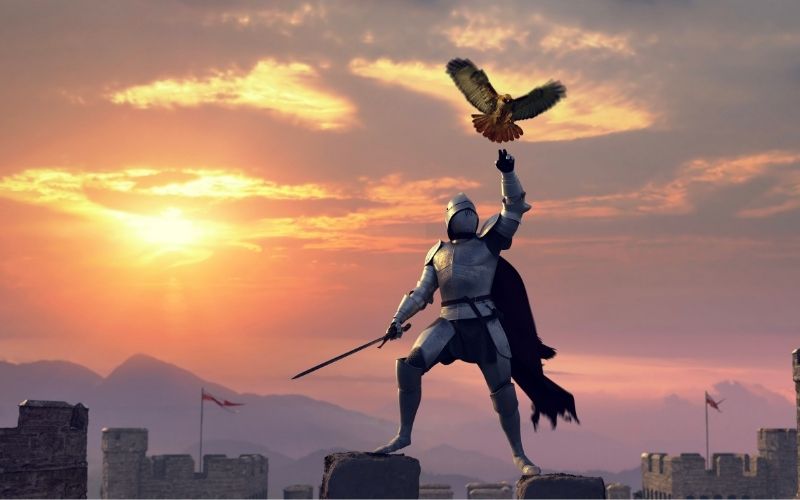
Alexander the Great in 4th century BC is seen with a falcon on a gloved fist on historical coins, and Julius Caesar was using falcons to catch carrier pigeons to discover the plans of his enemies.
Around the year 930 AD, Athelstan, the first king of all of England, enjoyed falconry so much it was written that several birds of prey must be paid to the king on a yearly basis by the North Wales rulers! And Genghis Khan is documented to have delayed battles to instead hunt with his hundreds of raptors that were passed on to Kublai Khan and documented by Marco Polo.
It was known as a ‘Sport of Kings,’ however, the popularity of falconry became so intense that a law was passed so only those with titles could legally pursue it.
The list below shows who could fly what birds of prey, from Emperors and Kings, to Priests and servants.
Pecking Order
Emperor – The Eagle, Vulture, and Merloun (Merlin)
King – The Ger Falcon and the Tercel of the Ger Falcon (Male and female Gyr falcons are the largest flying falcons)
Prince: The Falcon Gentle and the Tercel Gentle (Female and Male Peregrine falcons)
Duke: The Falcon of the Loch (Osprey)
Earl: The Falcon Peregrine
Baron: The Bustard (Common Buzzard)
Knight: The Sacre and the Sacret (Modern day Saker falcons)
Esquire: The Lanere and the Laneret
Lady: The Marloun (merlin)
Young Man: The Hobby
Yeoman: The Goshawk
Poor Man: The Tercell (A male bird most probably of lower rank)
Priest: The Sparrowhawk
Holy Water Clerk: The Musket (Male sparrowhawk)
Knave or Servant: The Kestrel
Falconry Today
In more recent years, falconers helped to reverse the decline of wild peregrine falcons from a global toxin named DDT.
After the ban on using the chemical insecticide, the captive breeding techniques used by falconers helped to build the numbers of peregrines so high that they are now no longer an endangered species. Those same breeding techniques are used throughout the world to help re-establish other birds that have become endangered in the wild.
Falconry is now protected to conserve this ancient art form, and in 2016 UNESCO inscribed falconry as a Living Human Heritage. This brings with it a convention to safeguard the practices, representations, expressions, knowledge, and skills of this living cultural heritage.
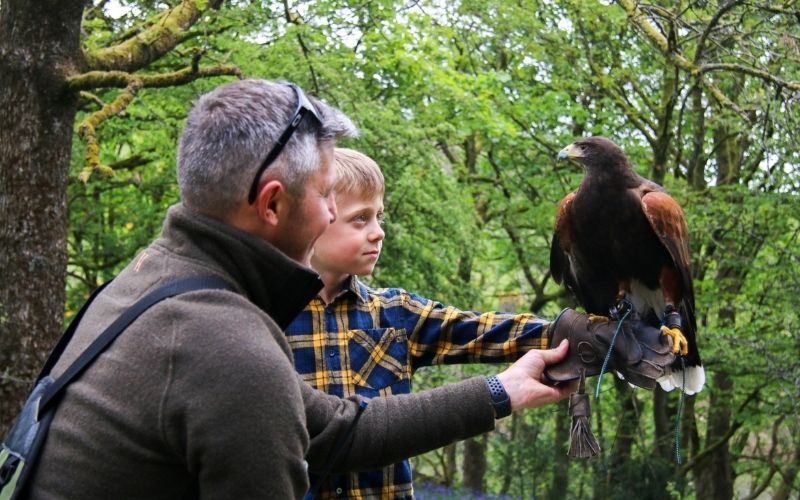
It encourages the traditional craftsmanship and the passing on of this knowledge from generation to generation. Involving not only practical skills, but the conservation of birds of prey and the preservation of their natural habitats.
In 2019, the International Association for Falconry and Conservation of Birds of Prey was created being wholly dedicated to the preservation of the ancient art of falconry.
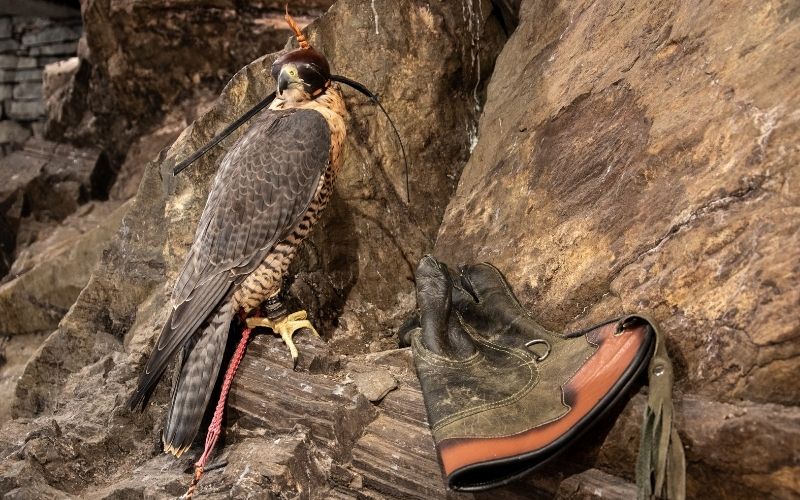
With this ringing endorsement, and rich history, it’s fitting that the ancient woodland at The Wild Boar invites its guests to enjoy Falconry experiences. Now you can be immersed in the private woods whilst experiencing the thrill of a hawk swooping through the trees above you, and maybe, landing on your fist!
Book now for a walk like no other where you’ll encounter the wild in all its glory.
Meet the Falconers
Stephen Lea the Director of Lake District Falconry, has been practicing the art for over thirty years and has studied wild birds of prey across the world to enhance his own birds’ lives. He has used his falconry knowledge to rehabilitate injured wild birds of prey to enable them a safe passage back into the wild.
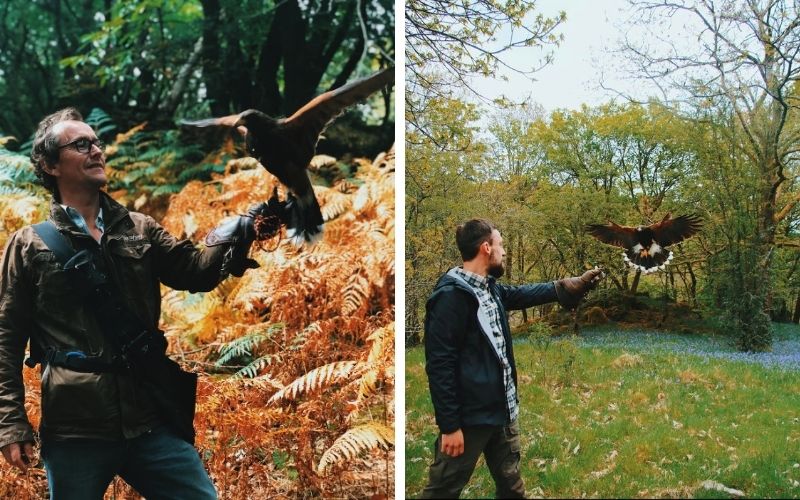
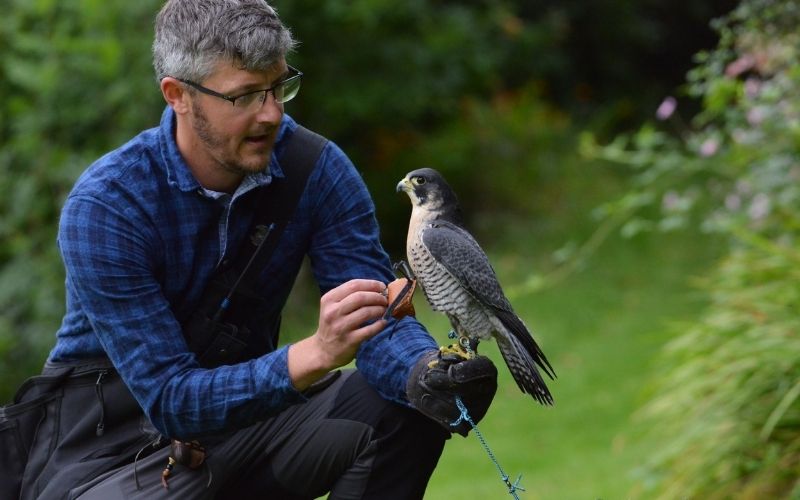
The Falconers: Stephen (top left), Alex (top right), Joe (above)
Alex Hatton has been flying birds for over ten years and has a degree in Zoology and wildlife conservation. He moved to the Lake District over six years ago to pursue his dream of living in the hills and flying birds of prey.
Joe Stansfield has been flying birds for over ten years and was an essential part of clearing nuisance birds using birds of prey from sensitive areas using natural and non-lethal methods. A local to Cumbria, Joe has now moved to Lake District Falconry full time to pursue his dream job and has also helped in the rehabilitation of injured birds.
Book your Falconry Experience
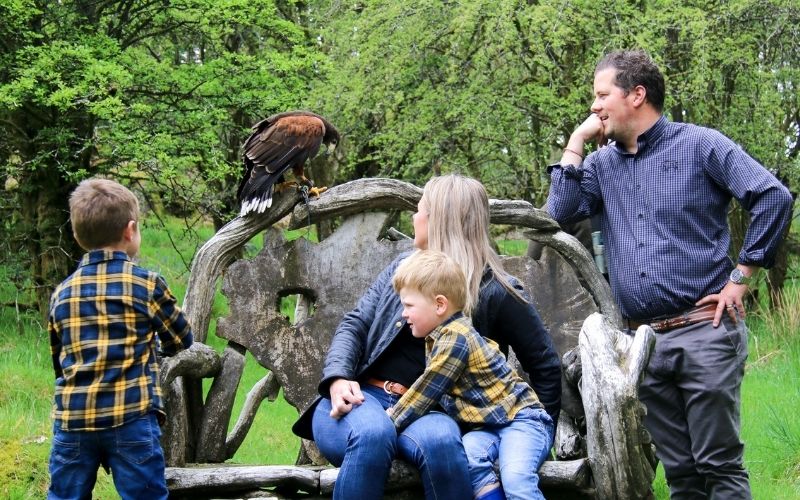
Hawk Walk Falconry Experience at The Wild Boar:
Resident price £50.00 per person.
Non Resident £85.00 per person (price includes a £25 voucher to use at any English Lakes venue)
Children are priced at £25.00 per child when accompanied by 2 or more paying adults. (*Please Note that the minimum age is 7 years old.)
To book then please call Lake District Falconry on 07826 063 782
